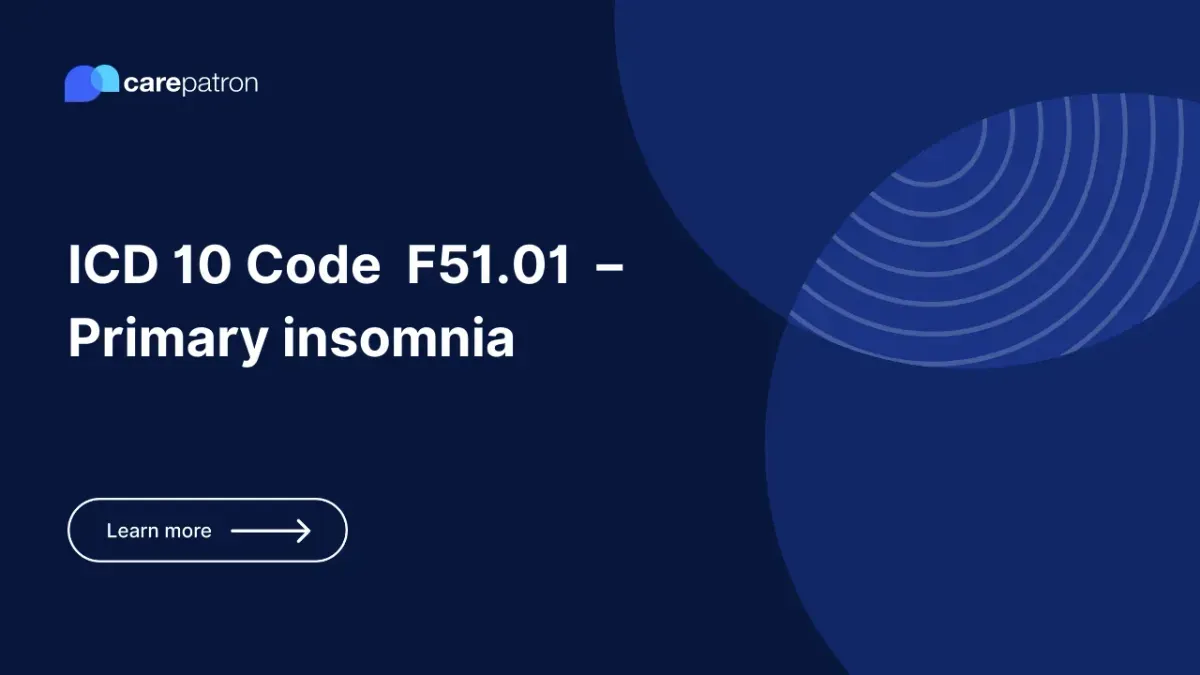
F51.01 – Primary insomnia
Discover how to use F51.01 when diagnosing primary insomnia. Learn more about this sleep disorder and its symptoms.
Use Code
Commonly asked questions
A diagnosis code F51.01 should be used when a person is experiencing difficulty falling asleep or staying asleep due to a primary insomnia disorder, such as stress, depression, or anxiety.
Yes, the F51.01 diagnosis code is generally billable to insurance companies and Medicare.
The common treatments for F51.01 include cognitive behavioral therapy (CBT), medication, good sleep hygiene practices, and lifestyle changes.
EHR and practice management software
Get started for free
*No credit card required
Free
$0/usd
Unlimited clients
Telehealth
1GB of storage
Client portal text
Automated billing and online payments
